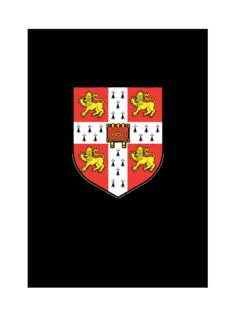
PhD Thesis Approved PDF
Preview PhD Thesis Approved
Chivalry and Crisis at the Court of Juan II of Castile: The Chivalric Writing of Alonso de Cartagena and his Contemporaries. This dissertation is submitted for the degree of Doctor of Philosophy. August 2016 James Michael Ellis Trinity Hall 2 3 Declaration This dissertation is the result of my own work and includes nothing which is the outcome of work done in collaboration except as declared in the Preface and specified in the text. It is not substantially the same as any that I have submitted, or, is being concurrently submitted for a degree or diploma or other qualification at the University of Cambridge or any other University or similar institution, except as declared in the Preface and specified in the text. I further state that no substantial part of my dissertation has already been submitted, or, is being concurrently submitted for any such degree, diploma or other qualification at the University of Cambridge or any other University or similar institution except as declared in the Preface and specified in the text. It does not exceed the prescribed word limit for the relevant Degree Committee. 4 5 Abstract This study addresses chivalric writing and court culture during the reign of Juan II of Castile and aims to examine the changing chivalric ideal in Castile during this turbulent period of Castilian history. My thesis argues that political crisis in Castile led to a corresponding crisis in Castilian chivalry as commentators at the royal court tried to correct the failings of the Castilian nobility. The study is based around the work of Alonso de Cartagena, an esteemed diplomat, translator and the Bishop of Burgos in the latter years of Juan II’s reign. Like many of his contemporaries, Cartagena lamented Castile’s descent into civil war and felt compelled to take up his pen in response to the drawn swords of the Castilian nobility. His Doctrinal de los caualleros, produced in 1444 at the height of the civil war, was a highly critical look at chivalry and nobility in the Kingdom of Castile. Cartagena’s view of the chivalric ideal was one which was fundamentally shaped by the civil war. This study seeks to set his ideas in their broader context and argues that they should be seen as part of a wider Castilian debate on chivalry and nobility. This debate involved a number of Cartagena’s contemporaries including, Diego de Valera, Juan Rodríguez del Padrón, Rodrigo Sánchez de Arévalo and the Marquis of Santillana Íñigo López de Mendoza. Cartagena, along with a number of these authors, challenged traditional views on chivalry and nobility and instead argued for a view of knighthood grounded in individual good conduct and personal worth, in place of lineage and inherited status. This study argues that the civil war in Castile paved the way for the development of a rich literature of chivalric reform and facilitated the development of the sort of knightly criticism seen elsewhere in Europe in the later Middle Ages. However, rather than simply being a theoretical discussion, the civil war and unique social pressures on the Iberian Peninsula made the debate highly relevant. Chivalry became a vehicle for political criticism and reform. For Cartagena and his contemporaries, chivalric writing offered a means of ending the civil war by addressing what they saw as endemic issues with the rebellious Castilian nobility. My work has thus argued for a view of chivalry as a changing and developing body of thought shaped by the intellectual and political context in which it developed. Chivalry was, in essence, a code of military ethics governing conduct on and off the battlefield. However, whilst its basic tenants of virtue, honour, prowess at arms and piety were broadly similar across Europe, how they were understood differed greatly. Rather than seeking an all-encompassing definition, I have argued that the focus should fall on the differences and complexities within chivalric thought. 7 Acknowledgements I am, first of all, deeply indebted to my supervisor Professor David Abulafia whose careful guidance has shaped this project from start to finish and without whose support it would not have been possible. I am similarly extremely grateful to the Arts and Humanities Research Council and the Royal Masonic Trust whose generous support allowed this project to happen. I would also like to thank Trinity Hall for their generous contributions to research expenses. I must also extend my thanks to Dr Rosemary Horrox for her invaluable advice and guidance. I am similarly very grateful to Dr Nigel Chancellor whose unwavering faith in me and constant support got me through the long process of research and writing. I must also extend my thanks to the staff at the many research libraries that I have visited, but special mention must be given to the staff of Cambridge University Library and the Biblioteca Nacional de España. I would also like to thank my partner Laura, my parents and my friends and colleagues who endured proof reading and numerous lengthy talks on chivalry without complaint. Finally, I would like to thank the men and women of Trinity Hall Boat Club who kept me sane over the last four years. 8 Contents Introduction. 11 1 The Reign of Juan II of Castile and the Life of Alonso de Cartagena. 39 2 Chivalry and Crisis: The Literary Response to Civil War. 61 3 Alonso de Cartagena, Diego de Valera and the Civil War. 81 4 Chivalry and Nobility. 107 5 Chivalry and Humanism. 153 6 Epilogue: In Search of Triumph. 183 Conclusion: Knights, Nobles and Courtiers at the Close of the Middle Ages. 193 Appendix: Study of Cambridge University Library MS. Add. 8586. 197 Bibliography. 211 10
Description: